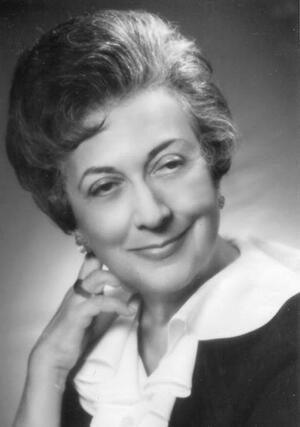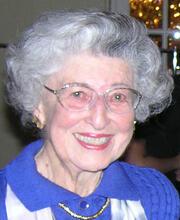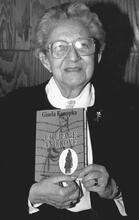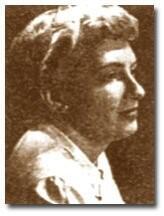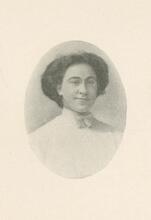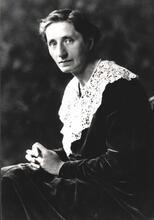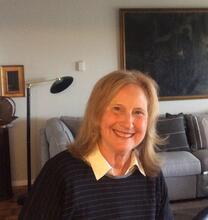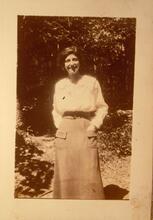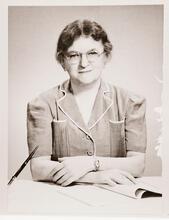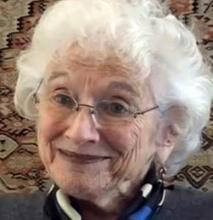Helen Harris Perlman
A pioneering figure in social work education, Helen Harris Perlman developed the "Chicago School" of social work theory, an approach that has influenced social work education and practice around the world. For more than seventy years, till her death at the age of ninety-nine, she remained a respected expert in the field to which she had devoted a lifetime.
Institution: University of Chicago
Helen Harris Perlman pioneered the “Chicago School” of social work, arguing that many people in crisis needed short-term solutions rather than long-term Freudian analysis. Perlman earned a BA from the University of Minnesota in 1926 and won several undergraduate prizes for her writing. She began working for the Jewish Social Service and was compelled by the stories of those she helped, spending eighteen years as a caseworker at various institutions. She then earned a master’s in social work from Columbia in 1943 and began teaching at the University of Chicago in 1945. In addition to publishing a wide array of work, Perlman served on the editorial boards various publications in the field and was honored with a lifetime achievement award by the Council on Social Work Education in 1992.
Helen Harris Perlman, with almost seventy years as a social work practitioner, supervisor, teacher, consultant, and author to her credit, was a legend in her field. The Samuel Deutsch Distinguished Service Professor Emerita in the School of Social Service Administration at the University of Chicago, Perlman developed the “Chicago School” of social work theory, an approach that has influenced social work education and practice around the world. She also served on national policy committees, lectured around the world, and participated in pioneering social work programs and research.
Early Life and Academics
Born on December 20, 1905, in St. Paul, Minnesota, she was the oldest of seven children, four of whom survived to adulthood. Her parents had come to St. Paul from Eastern Europe, and her father was a factory manager whose sympathies were often with his socialist and union workers rather than with his employer. Helen earned a B.A. in English literature and education from the University of Minnesota in 1926, a certificate in psychiatric social work from the New York School of Social Work in 1934, and an M.S. from the Columbia University School of Social Work in 1943. She married Max Perlman in 1935 and they had one son, Jonathan Harris Perlman (b. 1942).
Perlman originally hoped to teach college English, but she found that in the 1920s opportunities in academia for women, and for Jews, were scarce. She went to Chicago to look for a job as an advertising copywriter, but instead found a summer job as a counselor at the Jewish Social Service. “I had no training, but I used the ways I had developed as a writer to understand people’s actions and behaviors and feelings and problems,” she explained. “A whole world opened up to me. I had no idea of the kinds of trouble people had. I had a great deal of satisfaction from being able to help them. I found that in many cases, families faced the same kinds of problems and conflicts that one encountered in the great works of literature.”
When she was finally offered an advertising job that fall, she turned it down to stay in social work. She spent eighteen years as a social caseworker in family service agencies, schools, a child guidance clinic, and a psychiatric hospital, lectured part-time at the Columbia University School of Social Work from 1938 to 1945, and in 1945 became an assistant professor at the University of Chicago, where she taught until her retirement. She also taught and lectured in Canada, England, Hawaii, Hong Kong, Scotland, India, and Puerto Rico.
Research and Work
Perlman’s areas of study included ego psychology and its implications for clinical work; lifetime personality growth and development resulting from a person’s daily transactions at work, at home, and in society; therapeutic and educational problem-solving processes; and how social values and value conflicts affect future planning. She also taught social casework: its governing principles, ethics, values, and methods of helping and enabling people suffering from stress, disability, and other social or psychological problems.
During the 1950s, while scholars continued to debate the merits of the two existing schools of social work theory, the New York Freudian and the Pennsylvania Rankian, Perlman culled together her own clinical experience and her work with experts from both schools to develop a third approach, the “Chicago School” of public welfare. A new method of looking at controversial treatment issues, Perlman’s work laid the foundation for the Chicago School’s problem solving approach, still used by social workers today.
Recognition and Legacy
In 1957, Perlman published Social Casework: A Problem-Solving Process (1957), which was based on the premise that the “social surround” of our society and its value systems affect what is and is not possible, and that certain kinds of solutions breed new problems. It has sold over nearly two hundred thousand copies in English and been translated into ten languages. She wrote eight books, in all, which have been translated into eleven foreign languages, as well as over eighty published articles. She returned to her first love, literature, in her 1989 book The Dancing Clock. It offered a collection of her childhood memories to help others “explore and remember how they reacted to and were marked by events in their youth.” Her many honors ranged from the undergraduate Drama Prize for Best Playwright and the Best Writing of the Year award from the Department of English Literature at the University of Minnesota in the 1920s to her Lifetime Achievement Award presented by the Council on Social Work Education in 1992. In 1996, the University of Chicago celebrated Perlman’s ninetieth birthday and commemorated the establishment of a chair in her name at the School of Social Service Administration. Perlman was also active throughout her career in professional and educational circles of social work, serving on the editorial boards of the Journal of American Orthopsychiatry and Social Work.
Perlman continued to teach single graduate courses for nine years after her retirement, including “The Minority Child in Twentieth Century Literature” and “Utopias and Human Welfare,” in which she sought to establish how present-day social workers and thinkers can, and should, connect with humanists of the past.
Helen Harris Perlman died on September 18, 2004, in her home in Hyde Park, Illinois. Till her death at the age of ninety-nine, she remained a member of the Honorary Board of Trustees of the Institute for Clinical Social Work in Chicago—still a respected expert in the field to which she had devoted a lifetime.
Selected Works
The Dancing Clock, and Other Childhood Memories. Chicago, Ill: Academy Chicago Publishers, 1989.
With Charlotte Towle. Helping: Charlotte Towle on Social Work and Social Casework. Chicago: University of Chicago Press, 1969.
Looking Back to See Ahead. Chicago: University of Chicago Press, 1989.
Persona: Social Role and Personality. University of Chicago Press, 1968.
Perspectives on Social Casework. Temple University Press, 1971.
Relationship: The Heart of Helping People. Chicago: University of Chicago Press, 1979.
So You Want To Be A Social Worker. New York: Harper & Row, 1962. Rev. ed. 1970.
Social Casework: A Problem-Solving Process. University of Chicago Press, 1957.
“Perlman: Lifetime of leadership in social service.” The University of Chicago Chronicle, 1996.
“Helen Harris Perlman, 98.” The University of Chicago Chronicle, 2004 ;“Perlman developed ‘Chicago School’ of social service practice.” The University of Chicago Chronicle, 2004.

